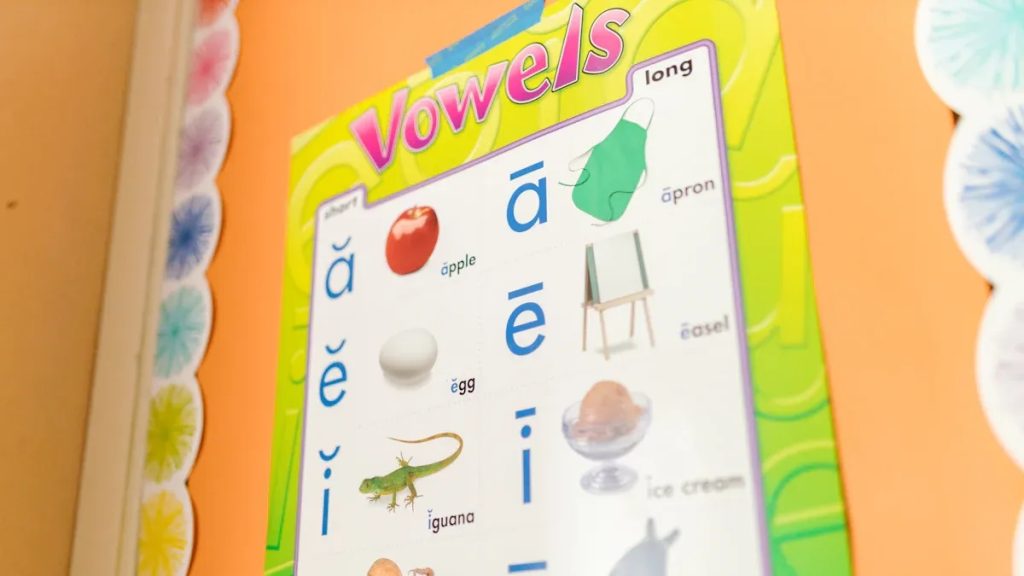You may wonder why do people have accents. The answer is simple: accents form because the way people speak changes based on where they grow up and who they talk to. You have an accent, just like everyone else. Accents show up in how you pronounce words, not only in the words you use. When you ask why do people have accents, remember that an accent is a normal part of language. It helps make the way people speak unique and meaningful.
- What Is an Accent?
- Why Do People Have Accent?
- Where Do Accents Come From?
- How Do Accents Develop?
- Social Significance of Accents
- FAQs
What Is an Accent?
When you listen to someone, you might hear a special way they say words. That is called an accent. Everyone has an accent, even if you think you do not. Your accent can show where you are from. It can also give clues about your background or group. Accents make talking more interesting. They help people notice different kinds of English in the world.
Accent vs. Dialect
You might wonder how accent and dialect are not the same. Linguists say accent means only how you say words. Dialect means more than that. It includes how you say words, what words you use, and grammar rules. For example, some people say “pop” and others say “soda.” That word choice is part of your dialect. The way you say the word is your accent. Dialects can show where you live or your culture. Accents are just about the sounds you make.
Here is a table to help you compare accent and dialect with other language features:
| Language Feature | Definition | Key Characteristics |
|---|---|---|
| Accent | Phonetic or pronunciation differences between groups | Only about how words sound; everyone has an accent from their language background; no one speaks without an accent |
| Dialect | A type of language with differences in words, grammar, and sounds | Has many language features; often from a place or group; includes regional and ethnic dialects |
| Sociolect | A way of speaking for a social group | Based on things like money, age, gender, or ethnicity; ethnolects are a kind of sociolect |
| Ethnolect | A type of sociolect for an ethnic group | Example: African-American Vernacular English; shows ethnic identity in language |
Tip: Everyone has an accent, but not all people use a different dialect. You can have both an accent and a dialect at the same time. If you want to eliminate your accent instantly, you can use Utell AI.

Pronunciation Patterns
Accents are easy to spot because of how people say words. These ways help you tell accents apart. Some common things you might notice are:
- The way vowels sound, like longer or shorter vowels
- If you say the “r” sound after vowels (rhoticity)
- Vowel changes, like how “cot” and “caught” sound different in some places
- Making groups of consonants simpler
- Changes in how your voice goes up or down
For example, people in the Southern United States often talk slower and use special vowel sounds. In New York, people may not say the “r” in words like “car.” Different places and groups have their own types of English. Each one has its own accent. These patterns make speech special and help you guess where someone is from.
Why Do People Have Accents?
You may wonder why people have accents. Many things shape how you talk. When you hear different accents, you hear history and culture. You also hear the first language people learned. Your brain and where you live work together to make your accent.
Native Language Influence
Your first language changes how you speak new languages. As a child, your brain learns sounds you hear every day. These habits stay with you as you grow up. Even when you learn a new language, your old habits remain. This is why people from different places sound different.
Scientists have looked at how your first language shapes your accent. Here is a table that shows what some studies found:
| Study / Author(s) | Type of Evidence | Key Findings Relevant to Query |
|---|---|---|
| Simmonds (2015) | Hypothesis and theory article | Young second language learners use special brain pathways. This helps them sound more like native speakers. There is a best time for learning accents. |
| Adank et al. (2015) | Neural model review | Different parts of your brain work together to understand accents. This shows how your brain deals with accent changes. |
| Christiner and Reiterer (2015) | Experimental study on musical training | Music training helps people copy foreign accents. Singing or playing music can help you learn new accents. |
| Ghazi-Saidi et al. (2015) | fMRI and linguistic experiment | Native speakers find it hard to make new sounds in another language. Their brains work harder to process accents. |
| Romero-Rivas et al. (2015) | ERP study on speech comprehension | Your brain quickly gets used to new accents. This shows fast changes in how you understand speech. |
Kids who move to a new country often sound like locals. If you start learning a new language before age 12, you can sound native. After this age, your first accent usually stays. This is because your brain is less able to learn new sounds as you get older. Social identity matters too. Some people keep their accent to feel close to family or culture. Even if you can learn a new accent, you might not want to use it. You may want to show where you come from.
Linguists say accents come from many places:
- Living far from others can make groups talk in their own way.
- People copy how others in their group speak.
- Your culture and background change your sounds.
- If you speak more than one language, you might mix them.
- Your class, school, and pride in your roots can change your accent.
Prosody and Sound Patterns
When you hear accents, you notice more than just sounds. You also hear rhythm, melody, and stress. These are called prosody and sound patterns. They are a big reason why people have accents.
- Prosody means rhythm, stress, intonation, and pitch. These change how you talk and listen.
- These features change how your speech flows and feels.
- Changes in pitch, stress, and rhythm make accents stand out.
- You often use the prosody from your first language in new ones. This makes your accent special.
- Prosody can make you easy or hard to understand. It also helps people tell accents apart.
If you wonder why people have accents, prosody is a big reason. The way you stress words or change your pitch makes your accent sound different. When you travel or meet new people, you hear these changes right away.
Note: Accents are not just about single sounds. The music in your speech—how you rise and fall, how you stress words—makes your accent special.
So, why do people have accents? You get them from your first language, your brain’s learning time, your social identity, and the rhythm and melody in your speech. When you hear accents, you hear where people come from and how they connect with others.
Where Do Accents Come From?
You may ask, where do accents come from? The answer starts with how people live in different places. Accents often come from both geography and society. When you hear a Scottish accent or a north-east English accent, you notice each place sounds special. Let’s find out why.
Geographic Isolation
Geographic isolation changes how people talk. When a group lives far away, their speech changes over time. You can see this on islands like Tristan da Cunha or St Helena. These places have their own accents because people there do not meet many outsiders.
- Mountains, rivers, or valleys can keep groups apart.
- Isolated groups often keep old ways of talking. This makes new accents.
- Island groups are good for studying how speech changes.
For example, English on Tristan da Cunha sounds very different from other English. In the Peruvian rainforest, a place called Pozuzo has an accent like Austrian, not German. Being far away often makes new accents that are different from the first language.
Social and Cultural Factors
Social and cultural things also help make accents. When people move to new cities, they bring their way of talking. Moving mixes accents and makes new ones, especially in cities.
- People who move often stay together and keep their old speech.
- When groups meet, they share words and sounds. This changes how they talk.
- Your job, class, and group change how you speak.
Researchers look at how accents change behavior. In studies, people listen to accents from their own country. They sometimes treat people with different accents in a special way. They may not work together as much. This shows accents tell about social and cultural history. Regional accents, like Scottish or north-east English, show where someone is from. They help you know what group a person belongs to.
Accents change when people meet, move, or start new groups. Every place has its own story, and you can hear it in how people talk.
How Do Accents Develop?
Childhood Language Learning
You start learning accents as soon as you begin to speak. Babies listen to the sounds around them and copy what they hear. By the time you reach two years old, your brain becomes very good at picking up the speech patterns of your family and community. This early stage is called the critical period. During this time, your brain has high plasticity, which means you can learn language and accent easily. If you learn a language before puberty, you often sound like a native speaker. After this period, your brain finds it harder to pick up a new english accent without keeping traces of your first one.
Note: The critical period hypothesis shows that children learn accents best before puberty. After this window, most people keep some features of their original accent, even if they learn a new language well.
You might notice that children who move to a new country before their teenage years often lose their old accent and pick up the local one. This happens because their brains adapt quickly. In contrast, adults usually keep some sounds from their first language, which is why you hear different accents in adults who learn a new language later in life.
Speech Accommodation
Accents do not stay the same forever. You change the way you speak based on who you talk to. This process is called speech accommodation. When you want to fit in or show you belong, you might adjust your accent to sound more like your friends or community. Sometimes, you do this without even thinking about it. For example, you may pick up new words or ways of saying things from classmates or coworkers.
Researchers found that people often change their accents to match those around them. This can happen in just a few days or weeks. In multilingual places, you hear many accents, so your brain becomes better at noticing small differences in speech. Peer groups, like friends at school, play a big role in shaping how you talk. If you join a new group, you might start using their accent features to feel included.
Fun Fact: Sometimes, rare conditions like Foreign Accent Syndrome can cause someone to suddenly speak with a different accent after a brain injury or illness. This shows that accents connect closely to how your brain controls speech.
So, how do accents develop? You learn them early in life, but they keep changing as you meet new people and move to new places. Your accent tells the story of where you have been and who you connect with.
Social Significance of Accents
Identity and Belonging
Accents are important for how you see yourself. They help you feel like you belong somewhere. When you talk, your accent is like your own voice print. It tells people where you are from and about your family’s past. Many people feel proud of their accent. It connects them to their home and culture. If you meet someone from your town, you may feel close if you sound the same.
- Accents show your culture and help you join a group.
- They can tell others your region, class, or school.
- People often keep their accent to stay close to their community.
- Accents help save old stories and ways, like a time capsule.
Language helps shape who you are. When you use your accent, you show your place and who you are.
Social identity theory says accents help you find your group. You might change your accent a bit to fit in or stand out. This shows accents help you make friends and feel accepted.
Stereotypes and Perceptions
People often judge others quickly by their accent. These ideas can lead to good or bad stereotypes. Some accents seem friendly or honest. Others are wrongly linked to low status or not being smart. Studies show standard accents are seen as skilled or high-status. Regional or foreign accents may seem less skilled but more friendly.
| Accent Type | Common Stereotypes / Perceptions |
|---|---|
| Standard Accents | High status, skilled, but sometimes less friendly |
| Regional Accents | Lower status, but seen as warm and reliable |
| Urban Non-standard | Often judged harshly on status and skill |
These ideas can change your life in many ways. In school, teachers may like students with standard accents more. This can hurt the confidence of others. At work, bosses may judge you by your accent, not your skills. This can make it harder to get jobs or promotions. Accent discrimination can also cause stress and make you feel left out.
- Accents can change how people see your smarts or honesty.
- Bias against some accents can mean unfair treatment at school or work.
- Accent discrimination can hurt your feelings and lower your self-worth.
Remember, accents are a normal part of language. They show how different people and cultures are. When you respect all accents, you help make your community kinder and fairer.
You have an accent because of where you lived as a kid. The people you talked to and the sounds you heard shaped your speech. Where you live and who you know change how you talk. Your accent can change as you grow up. It shows who you are and links you to your group.
- Accents and dialects are just differences, not errors.
- When you respect all accents, you help make the world nicer and fair.
- Linguists want everyone to value every way people speak.
Enjoy hearing many kinds of accents. Every accent shares a story that should be celebrated.
FAQs
What is the difference between an accent and a dialect?
You use an accent when you change how words sound. A dialect includes accent, vocabulary, and grammar. Every person has an accent. Not everyone uses a different dialect.
Can you lose your accent?
You can change your accent if you move or spend time with new people. Children often pick up new accents quickly. Adults may keep some sounds from their first language.
Why do some people have stronger accents than others?
You hear stronger accents when someone uses more features from their first language. The age you learn a new language and how much you use it also matter.
Tip: Practice and listening help you adjust your accent if you want to.
Do accents affect understanding?
Accents can make it harder to understand someone at first. Your brain gets used to new sounds over time. Most people learn to understand different accents with practice.




I always used to mix up accent and dialect, but this post made the distinction clear! It’s fascinating to think that accents are just about pronunciation, while dialects also influence grammar and word choice.
It’s interesting how accents can say so much about where you’re from, even when the words themselves might be common. It’s like a hidden map of someone’s life experience!